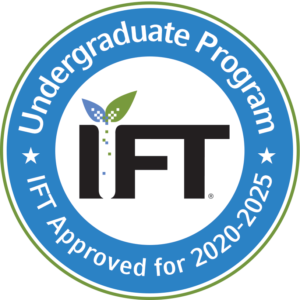Skip to content
Home > Wang’s Lipid and Protein Innovation Lab
Wang’s Lipid and Protein Innovation Lab
Google Scholar
Research Areas
- Characterization of bioactive lipids: We use conventional TLC, HPLC, and GC-MS to characterize different classes of lipids, such as terpenoids from hemp extract (shown to be effective bioinsecticides and biofungicides when dispersed as nanoemulsions), phospholipids and glycolipids in microalgae, and other bioactive lipids such as tocotrienols, astaxanthins, and sphingolipids in oleaginous biomass.



- Lipid oxidation and stabilization: We study how the lipid’s molecular structure, such as a pendent hydroxyl group (free vs substituted), affects the kinetics of lipid oxidation. We also study how to prevent lipid oxidation in bulk oil or in dispersion systems, such as model emulsions and processed meat products.

- Synthesis and evaluation of functional lipids, such as biobased waxes: We use domestic vegetable oil as feedstock to make wax-like materials that can mimic paraffin and carnauba wax’s properties. We investigate the synergistic effect among different classes of lipidic compounds found in wax matrices, so we can deliver tunable properties by engineering molecular composition, nanoscale and mesoscale crystallinity (by SAXS), thermal, mechanical, and coating and barrier properties of the biowaxes.




- Lipid extraction and fractionation: We explore environmentally friendly methods and conditions to maximize and optimize lipid extraction from corn fermentation by-products, microbial biomass, egg yolk, and dairy processing byproduct streams.



- Protein chemistry and novel applications: We investigate protein derived compounds that are effective in inhibiting ice recrystallization and growth. These biobased and safe alternatives to the synthesized industrial chemicals have potentials to be used in frozen storage of food and biomaterials to prevent freezing induced damage to food structure and cells.



Examples of Recent Trainees
- Francisco Layva-Gutierrez, PhD: Research Scientist, BroadPharm
- Zifan Wan, PhD: Assistant Professor, Food Science, University of Wisconsin
- Linxing Yao, PhD: Proteomics and Metabolomics Facility, Colorado State University
- Jose Gerde, PhD: Faculty of Universidad Nacional de Rosario/CONICET, Argentina
- Guang Wang, PhD: R&D Director, Bunge-Loders Croklaan
- Hui Wang, PhD: Sr. Technical Manager, Protein Processing, ADM
- Karamat Rezaei, PhD: Professor of the Department of Food Science, Engineering and Technology, University of Tehran, Iran
- Lei Fang, PhD: Manager of Technical Services, AgCertain Industries, Inc.
- Fei Tao, PhD: Research Assistant Professor, School of Food Science and Engineering, Hainan University
- Brett Brothers, MS: Associate Food Designers, Kellanova
- Carmen Au, MS: Senior R&D Manager at Pilgrim’s
Awards and Honors for the Work of Wang’s Team
- UTK GSS (Graduate Student Senate) Outstanding Graduate Student Support Award, 2024
- AOCS (American Oil Chemists’ Society) Best Paper Award; ADM Best Paper in Protein and Co-Products Division, 2023
- UTIA’s Charles E. Wharton Institute Professor, 2022 (https://utianews.tennessee.edu/ut-institute-of-agriculture-presents-top-faculty-and-staff-awards-for-2022/)
- AOCS Alton E. Bailey Award for Outstanding Research and Exceptional Service in the Field of Lipids and Associated Products, 2020 (https://www.lipidsfatsoilssurfactantsohmy.com/2020/07/alton-e-bailey-award-feature-dr-tong.html; https://www.youtube.com/watch?v=uz7UvgYVK5c)
- AOCS Best Paper Award; ADM Best Paper in Protein and Co-Products Division, 2020
- Endowed Jean Bacon Louis Faculty Fellow, Iowa State University (ISU), 2017
- AOCS Society Fellow, 2016
- Iowa State University Mid-Career Achievement in Research, 2014
- American Oil Chemists’ Society’s Timothy L. Mounts Award for Excellence of Research in Basic or Applied Edible Oils, 2013
- Iowa State University College of Agriculture and Life Sciences Mid-Career Achievement in Research Award, 2012
- Women of Innovation in Research Innovation and Leadership, Technology Association of Iowa, 2009
- Iowa State University College of Agriculture Early Achievement in Research Award, 2004
- Iowa State University Graduate Research Excellence Award, 1998
- AOCS Honored Student Award, 1997
Recently in the Media
- UTIA Outstanding in Their Field, https://utia.tennessee.edu/spotlights/. Nov, 2023
- C&EN news: Soy proteins may extend life of frozen foods, https://cen.acs.org/food/food-ingredients/Soy-proteins-extend-life-frozen/101/i24. July, 2023
- The Conversation: ‘Freezer burn’ is a serious problem – preventing ice recrystallization may alleviate it, https://theconversation.com/freezer-burn-is-a-serious-problem-preventing-ice-recrystallization-may-alleviate-it-164989; Aug, 2021
- AAAS EurekAlert on NSF grant, https://www.eurekalert.org/news-releases/878326. Jun, 2021
- Patent Issued to UT Researchers for Development of Sustainable Food Packaging Alternative from Soy Oil: https://m.farms.com/news/patent-issued-to-ut-researchers-for-development-of-sustainable-food-packaging-alternative-from-soy-oil-149390.aspx. Sept, 2019
- Iowa Soybean Review cover story: Soybean Solutions, https://issuu.com/jmagnani/docs/isr19_february_hr_pages?e=7115535/67747660. Feb, 2019
Research Supported By




































